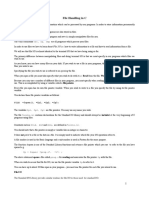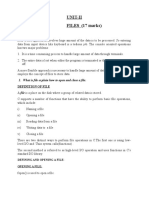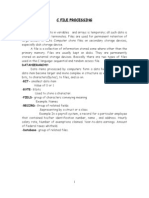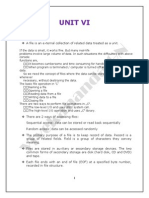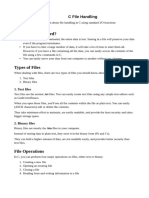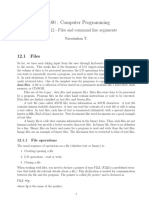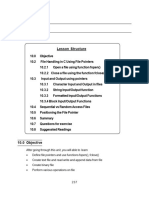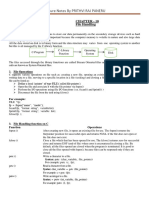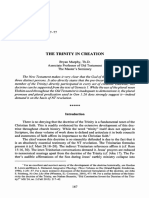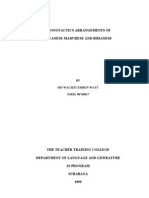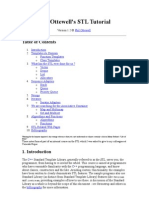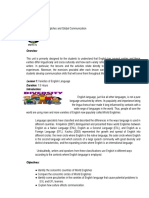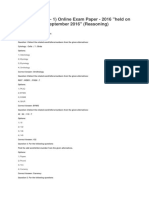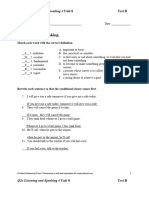100% found this document useful (1 vote)
36 views8 pagesFile Handling in C
The document provides an overview of file handling in C, explaining the importance of files for data preservation and transfer. It details the types of files (text and binary), file operations (creating, opening, closing, reading, and writing), and various file handling functions such as fopen(), fread(), and fwrite(). Additionally, it outlines different opening modes for files and includes examples of file I/O operations.
Uploaded by
kiplimogilbert001Copyright
© © All Rights Reserved
We take content rights seriously. If you suspect this is your content, claim it here.
Available Formats
Download as DOCX, PDF, TXT or read online on Scribd
100% found this document useful (1 vote)
36 views8 pagesFile Handling in C
The document provides an overview of file handling in C, explaining the importance of files for data preservation and transfer. It details the types of files (text and binary), file operations (creating, opening, closing, reading, and writing), and various file handling functions such as fopen(), fread(), and fwrite(). Additionally, it outlines different opening modes for files and includes examples of file I/O operations.
Uploaded by
kiplimogilbert001Copyright
© © All Rights Reserved
We take content rights seriously. If you suspect this is your content, claim it here.
Available Formats
Download as DOCX, PDF, TXT or read online on Scribd
/ 8











